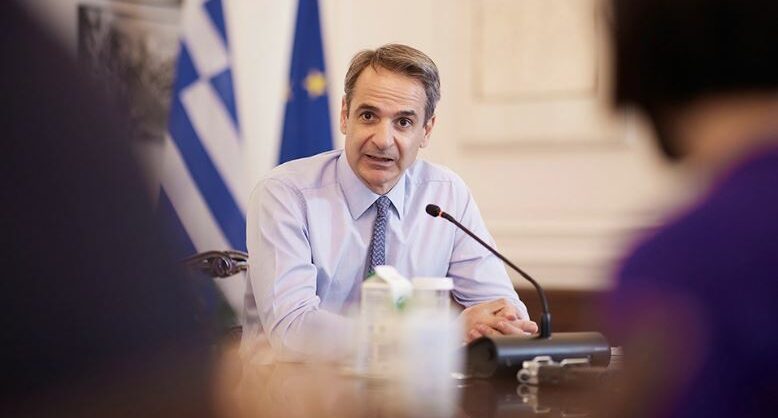The Greek PM called an emergency meeting which will be attended by gas companies in light of the prospect of Russia turning off the flow of natural gas from the Nord Stream1 pipeline.
According to information, the meeting, which was planned since the beginning of the week, will be held this afternoon, in the wake of yesterday’s announcements that Gazprom cannot guarantee the safe operation of the pipeline that transports gas to the EU as it cannot confirm that it will recover the German turbine that had been sent to Canada for repair.
In today’s meeting chaired by the Prime Minister, with the presence of government officials Gerapetritis, Skertsos, Skrekas, Petralias, Sdoukou, with the participation of officials and executives from gas companies and market bodies Dagoumas (president of RAE), Stassis (managing director of PPC), Xifaras (managing director of DEPA), Gali (DESFA Board of Directors) and Kapros (energy economy professor at NTUA, adviser to the government) the parties will try to work out a plan to mitigate the expected pressure.
Despite the fact that Greece receives gas from the Turkstream pipeline, the closing of the tap will have a knock-on effect on the energy sufficiency of the EU and a large impact on both LNG demand and electricity prices.
The government and the relevant ministry have assured the public that there are alternative sources to supply the market safely. However, the great concern of finding suitable cargoes of liquefied LNG gas remains, especially at the moment the market needs them the most due to the surge in demand and the very high prices.
In the measures taken, the main burden for the country’s energy sufficiency falls on LNG supplies and lignite. An effort is being made so that the liquefied natural gas terminal of DESFA in Revythoussa is constantly full in order to meet the needs of consumption, something that is also ensured with the new FSU unit.
Imports are estimated to be boosted through the TAP pipeline, while for lignite, the planning provides that 4 to 7 lignite units will be in operation daily. In this context, the tests of the new Ptolemais 5 unit are also scheduled to start in August, with the aim of joining the network in the fall.
The additional measures include the operation of 5 natural gas units from PPC, Elpedison, Heron with alternative fuel-diesel, the limitation of electricity exports, but also the reduction of exports to Bulgaria.


































